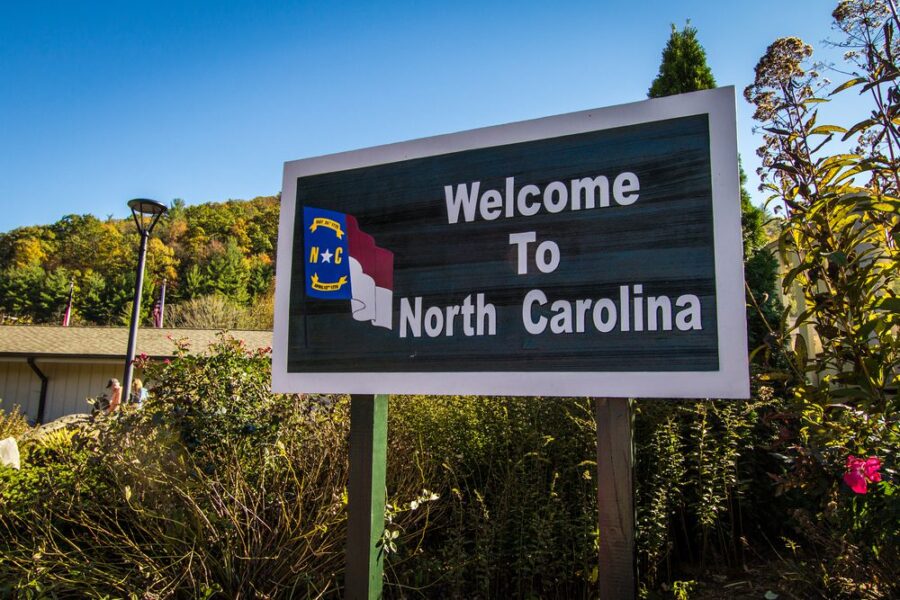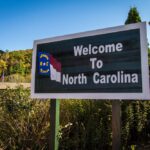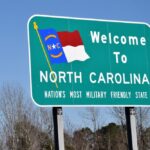North Carolina gambling helpline sees sports betting become highest reported problem

North Carolina’s Problem Gambling Helpline has released figures showing that sports betting has surpassed lottery as the main reason for helpline contact for the first time, closely followed by casino.
Problem Gambling Program Administrator at the North Carolina Department of Health and Human Services, Amanda Winters, said that for the last 16 years the lottery had been the primary cause for people to contact the helpline.
The report inferred that younger adults are running into problems more quickly, often turning to text or chat for help instead of formal treatment.
The helpline answered over 8,100 calls in the latest fiscal year, more than 11% higher than in 2024. Sports betting was legalized in the state in March 2024.
Winters added, “When we looked at the demographics in the helpline of sports betting compared to non-sports betting, we found that the people who were calling were of a younger age between 18 and 34. And with sports betting, people were likely to experience the problem for less than one year.”
Additionally, 25% of contacts tied to non-sports betting came from spouses, while 50% of sports betting contacts came from concerned parents.
Fiscal-year lottery sales reached approximately US$6.6 billion, up US$1.2 billion yearly, driven by US$2.6 billion in digital instant sales in its first full year, while retail lottery fell 6%. In August, North Carolinians wagered US$463 million on sports, about 30% above August 2024.
The lottery contributed US$1 million to the helpline annually, and lawmakers allocated US$2 million more to the Department of Health and Human Services when sports betting launched.
A recent study from TransUnion on gambling activity showed similar age demographics, with statistics showing Gen Z and millennials driving gambling growth in the US.
Abi Bray brings strong researching skills to the forefront of all of her writing, whether it’s the newest slots, industry trends or the ever changing legislation across the U.S, Asia and Australia, she maintains a keen eye for detail and a passion for reporting.
Verticals:
Sectors:
Topics:
Dig Deeper
The Backstory
How a fast-growing market set the stage
North Carolina’s sprint into mobile sports betting began in March 2024, when the state opened a tightly regulated, app-based market under the North Carolina State Lottery Commission. One immediate showcase arrived less than a year later, when residents were allowed to legally wager on the Super Bowl for the first time, a milestone regulators framed as proof that betting could occur within a safer, licensed framework. The commission emphasized consumer protections and data security as the eight approved operators — including FanDuel, DraftKings, BetMGM and others — took bets on moneyline, spreads and totals tied to the NFL’s biggest game, highlighting the state’s model for oversight and payouts. That debut, detailed in coverage of North Carolina bettors’ first Super Bowl, marked the market’s first national test and helped normalize the new channel for a wider audience. North Carolina bettors’ first Super Bowl under state regulation underscored the state’s message: legal betting, done through licensed platforms, could be both accessible and accountable.
Within a year, the market’s scale became clear. In an anniversary snapshot, regulators reported more than $6.6 billion in wagers and $713.8 million in revenue since launch, with bettors winning more than $5.9 billion. The commission also pointed to an 18% tax that had yielded $128 million for the state, supporting collegiate and youth sports and the General Fund, along with $2 million a year for problem gambling services. The report also noted a pipeline for adding pari-mutuel horse race wagering, signaling ambitions beyond sports betting’s first phase. Those outcomes and next steps were outlined in the commission’s one-year report: a year of legal online sports betting in North Carolina.
Revenue momentum and the post-launch surge
Monthly results after launch reflected steady engagement, then a jump. In January, bettors generated $74.5 million in gross wagering revenue, doubling December’s total while pushing handle to $646.9 million. Payouts decreased from the prior month, contributing to the revenue swing. By that point, North Carolinians had wagered more than $6 billion in 11 months, just ahead of the Super Bowl. The commission emphasized that operators pay an 18% tax on gross wagering revenue, which funds gambling education and treatment programs and amateur sports. Those figures and the tax channel were detailed in January’s revenue doubling and handle growth, reinforcing that the market’s pace was accelerating heading into major events and college basketball’s high season.
The early strength built on a prepared operator field. Eight brands took initial licenses, establishing competitive pricing and broad promotion. While marketing spend and promotions can suppress revenue in new markets, the state’s January totals and year-one tallies suggested operators were finding traction without dramatic losses. The interplay between promotional intensity, bettor acquisition and taxation moved to the center of policy debates as lawmakers assessed how much of the growing pie should support public priorities.
Policy pivots: taxing growth and directing dollars
The tax structure and where to send the proceeds became a flashpoint in the second year. Senate Republicans proposed doubling the tax rate on sports betting operators to 36%, aligning North Carolina with high-tax peers like Pennsylvania and falling short of New York’s 51% ceiling but well above emerging-market averages. Budget writers argued a higher rate could generate tens of millions more for athletic departments, with allocations envisioned across the University of North Carolina system. Under the proposal, UNC and N.C. State would each receive about $11.5 million, with tiered funding for smaller campuses. The plan also contemplated scheduling mandates to promote in-system matchups that could lift revenue and exposure. The contours and stakes of that proposal were laid out in the bid to double the online sports betting tax, which signaled a pivot from proving the model to maximizing the return — and asked operators to absorb a much heavier burden.
Industry response was wary, with large books expected to resist a higher take, warning of thinner margins that could reduce promotions, shift pricing and, over time, dampen handle. But lawmakers backing the hike framed the tax as a logical extension of a program already generating nine-figure revenue and broad interest, aiming to share benefits more widely across public institutions while relying on operators’ scale to sustain consumer offerings.
Protecting college athletes amid record wagering
Even as lawmakers eyed more revenue, they weighed how to reduce integrity risks and harassment tied to prop bets on college athletes. A bipartisan group introduced HB 828 to ban prop wagering on individual college performances at commercial online sportsbooks. The bill defines prop bets as wagers on actions or statistics that do not directly affect the final outcome, mirroring restrictions in states including Ohio, Maryland, New York, Pennsylvania and Louisiana. The measure followed a record March 2025 with more than $667 million in wagers, boosted by the NCAA men’s basketball tournament alongside NBA and NHL seasons, heightening exposure for college athletes. The push aligned with NCAA President Charlie Baker’s call last year for a national ban. Details of the proposal and its timeline are in the bill to ban college prop betting, setting up a test of how North Carolina balances consumer choice with athlete welfare and game integrity.
If enacted July 1, 2025, the ban would narrow the state’s high-interest, high-volume college menu without affecting outcome-based markets. The change could cut harassment incidents tied to player props and reduce data-scouting incentives that amplify pressures on student-athletes. Operators would need to reconfigure offerings during one of the most popular betting windows of the year, with unknown impacts on handle distribution.
The social cost ledger and who seeks help
As money flowed into state accounts and sportsbooks, calls for vigilance mounted. North Carolina’s Problem Gambling Helpline reported that, for the first time, sports betting surpassed the lottery as the top reason people sought help, with casino issues close behind. The helpline handled more than 8,100 calls in the latest fiscal year, up over 11% from 2024, and saw a striking shift in who reached out: younger adults between 18 and 34, often within a year of experiencing problems and more likely to initiate contact by text or chat than pursue formal treatment. Parents made up half of contacts tied to sports betting, compared with spouses accounting for a quarter of non-sports calls. Those patterns and the funding picture — $1 million annually from the lottery plus $2 million more from lawmakers when sports betting launched — were detailed in the helpline’s report on rising sports betting problems.
The helpline’s findings parallel market data. Rapid adoption among Gen Z and millennials has driven national growth, and North Carolina’s digital channels have amplified access, including the lottery’s surge in online instant games during its first full year. In August, sports wagering neared half a billion dollars, a roughly 30% increase from August 2024. Those gains raise the policy stakes: the same tax receipts earmarked for education, youth sports and treatment must keep pace with usage and harm trends, especially among younger adults who encounter gambling products on mobile first.
Together, these threads show a market maturing fast — with surging handle, expanding tax ambitions, new guardrails for college sports and early-warning indicators from public health. The next phase will test whether North Carolina can align revenue goals with responsible-growth safeguards as betting embeds deeper into everyday sports culture.







